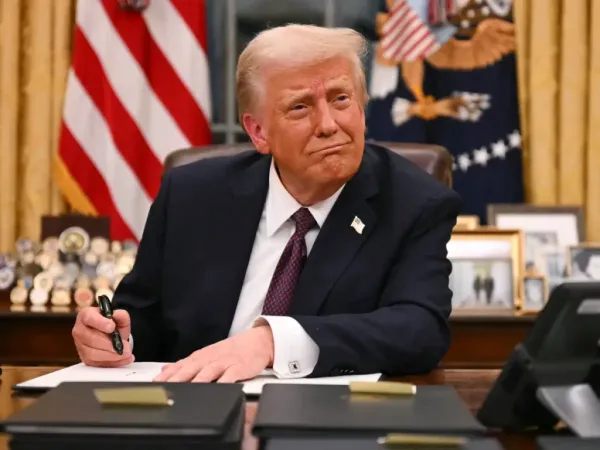

A significant setback has been delivered to former US President Donald Trump as a federal court in New York blocked his sweeping plan to impose high tariffs on imports from nearly every country worldwide. This decision came from a three-judge panel of the US Court of International Trade, which ruled that Trump exceeded his authority under the 1977 International Emergency Economic Powers Act (IEEPA) by declaring a national emergency to justify these broad tariffs.
The Tariffs in Question
The court’s ruling halts the implementation of tariffs introduced by Trump last month, which targeted almost all US trading partners. It also covers earlier tariffs imposed specifically on China, Mexico, and Canada. These so-called reciprocal tariffs were set as high as 50% on countries with which the US had a trade deficit, alongside a 10% baseline tariff on most others. Though Trump temporarily suspended the reciprocal tariffs to allow for negotiations, he kept the baseline tariffs active, claiming exceptional powers under IEEPA by declaring the US’s ongoing trade deficits a “national emergency.”
Previously, in February, Trump had also used this law to impose tariffs on Canada, Mexico, and China, citing issues like illegal immigration and drug trafficking as national emergencies.
Legal Grounds for the Court’s Decision
While the US Constitution grants Congress the authority to set tariffs, presidents have increasingly exercised power in this domain, with Trump pushing these limits aggressively. The court consolidated two cases challenging the tariffs—one from small businesses and another from a coalition of 12 US states.
The court ruled that Trump’s extensive tariffs overstepped the powers granted by IEEPA and failed to address the alleged national emergency. The judges pointed out that America’s trade deficits have been consistent for nearly five decades and do not qualify as sudden emergencies warranting such action.
However, tariffs imposed under different legislation, like those on steel, aluminum, and automobiles—requiring Commerce Department investigations—remain unaffected.
Implications for Trump’s Trade Agenda
Experts say the court’s decision throws Trump’s trade policies into uncertainty. Negotiating partners may delay concessions until legal clarity emerges, and companies might expedite shipments to avoid future tariff impacts. The court also highlighted that Trump still retains limited authority under the Trade Act of 1974 to impose tariffs, but only up to 15% and for a maximum of 150 days against countries with significant trade deficits.
Trade policy scholars emphasize that this ruling curtails executive overreach and reinforces congressional authority in trade matters, effectively undermining Trump’s justification for using emergency powers.
What Comes Next?
The decision is expected to be appealed, potentially reaching the Supreme Court, where the future of these tariffs will be decided. Meanwhile, the ruling creates a pause in the trade conflict and may influence ongoing negotiations and supply chain strategies globally.
The post appeared first on .